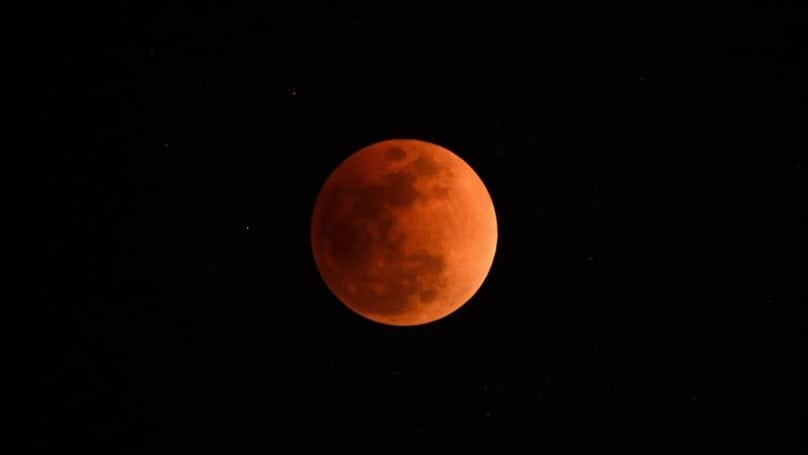New Delhi: The Astronomical Society of India (ASI) have finally decided to look into one of the famous superstitions regarding the eclipses that one shouldn’t eat or drink during any of these events.
The ASI has started a campaign and invited people defying the belief during the 6 hour, 17 minute, 18 second long eclipse starting at 10:44 pm on July 27 — the longest lunar eclipse this century asking them to post photographs on social media with the hashtag: #EclipseEating.
“We are trying to dispel notions that eating during eclipses is harmful,” said the ASI education committee head Aniket Sule.
“During an eclipse, babas and gurus are quoted in the news saying “don’t eat”; we have to counter the narrative,” he adds.
The ASI is trying to defy the centuries-old superstitious beliefs which have scientific proofs to this ‘don’t eat during eclipses notion’
The belief according to many astrologers, gurus, etc is that the food turns poisonous during eclipses.
Explaining the centuries-old superstition, Sule said the roots of this superstition date back to the pre-electricity era when such events could cause complete darkness and during those times food contamination risks were higher since anything left in open can be contaminated by any means in absence of light.
Explaining the other superstition that the earth’s natural rhythms are interfered during the hours when there is no moon and then back to the full moon.
“It ‘s just a play of shadows, the sun, moon and earth don’t change their basic nature. There is no change in the rays of suns; it is the same thing if a person stood in the shadow of a building,” Sule explains.
What exactly is a lunar eclipse? It’s an event when the earth comes between the sun and the moon. An umbral shadow is an area where the earth has blocked off all direct sunlight from reaching the moon. When it enters the totality phase, the moon is completely inside the earth’s shadow and acquires a reddish hue, prompting many to call it a ‘blood moon’. The total eclipse of the moon, when it is completely under the earth’s shadow, will last 1 hour and 43 minutes.
Even the pregnant woman are warned against going out or consuming anything during this period since it could have adverse effects on the foetus.
“It does not have a basis in medical science,” clarifies Anuradha Kapur, director and head of the gynecology unit at the Max Hospital in Saket, New Delhi, adding that believing this “ all our patients are saying that they won’t step out during the eclipse.
And there is absolutely no harm in viewing the solar eclipse through naked eyes says Arvind Paranjpye, director of the Nehru Planetarium, in Mumbai.
“For those who choose to be indoors, they might be able to catch a glimpse online. The planetarium plans to webcast live feed from a telescope,” he said. “We will take a call on the same day, depending on the weather. If it is too cloudy it won’t be possible.”

